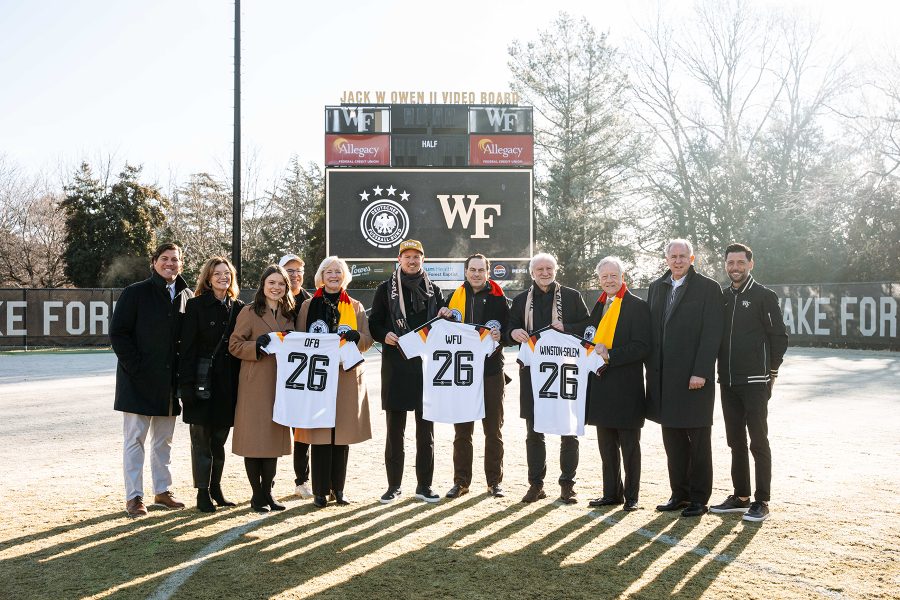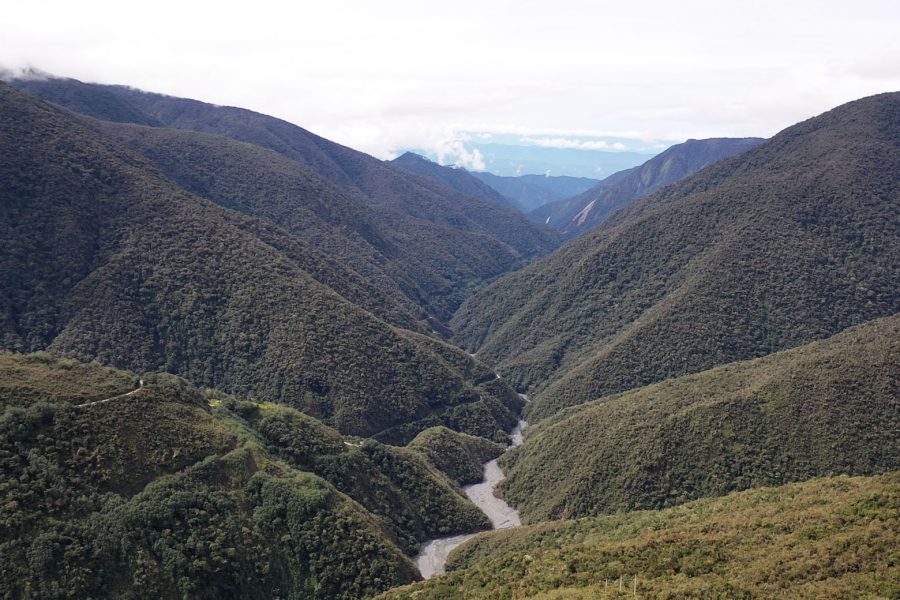Senior joins professor to study microfinance projects
In many African villages, women eking out a living selling fruits and vegetables have no concept of business principles and are most likely illiterate, almost guaranteeing that they’ll remain mired in poverty.
If only they had the opportunity to learn basic business skills and maybe even obtain small loans, they could exponentially increase their profits, which often come to less than $1 per day.
That’s where senior Maddie Brandenburger comes in. She’ll be spending nine weeks this summer — thanks to a research scholarship from the Richter Scholars Program — working with women in Kenya, Tanzania and Rwanda to study the effects of microsavings and microfinance projects in both rural and urban areas.
Brandenburger, an economics major from Greenwich, Conn., with a double minor in anthropology and international development and policy, will work alongside journalism instructor Mary Martin Niepold (’65) in Africa.
Niepold started the Nyanya Project in 2007 to provide support for African grandmothers who are caring for their grandchildren orphaned by AIDS. The grandmothers (nyanyas) receive training in such basic business skills as bookkeeping, inventory and traffic patterns, enabling them to turn their fruit stands or craft stalls into viable enterprises.
Niepold and Brandenburger will interview grandmothers who have completed the training to gather information on how the program has affected their lives and businesses. “I couldn’t be more blessed to have Maddie with me,” Niepold said. “She’s very knowledgeable, she has such a big heart, and she’s such a smart, engaged student.”
Brandenburger feels blessed as well. She fell in love with Africa when she first visited Uganda in 2008 on another research grant to study the effects of foreign aid on urban communities. She returned to Africa earlier this year to attend the Africa-Middle East Microcredit Summit in Kenya, thanks to a seed grant from Wake Forest’s Office of Entrepreneurship and Liberal Arts.
“I was surrounded by the best and the brightest in the world, and in a continent riddled with so much poverty and sadness, I felt nothing but hope,” she wrote in a blog entry for the Grameen Foundation, a Washington, DC-based organization that provides the world’s poorest people with collateral-free banking services.
A former Grameen intern, Brandenburger has joined other interns to develop MFI Connect, an organization that helps students interested in microfinance take action to help the poor.
Having felt that sense of hope, Brandenburger wants nothing more than to spread it among the people she meets this summer. She’s passionate about supporting micro-level projects that address the roots of poverty.
“It’s a totally vicious cycle of poverty, and how do you escape that if you don’t know any different? In the United States, you can get a public school education and you can change your life, but in Africa that’s just not the case,” she said. “It’s believing in the power of these people, seeing them as human beings who are just as competent as we are, but they just haven’t had the same opportunities.”
Categories: Experiential Learning, Global Wake Forest, Mentorship, University Announcements
Media Contact
Wake Forest News
media@wfu.edu
336.758.5237



